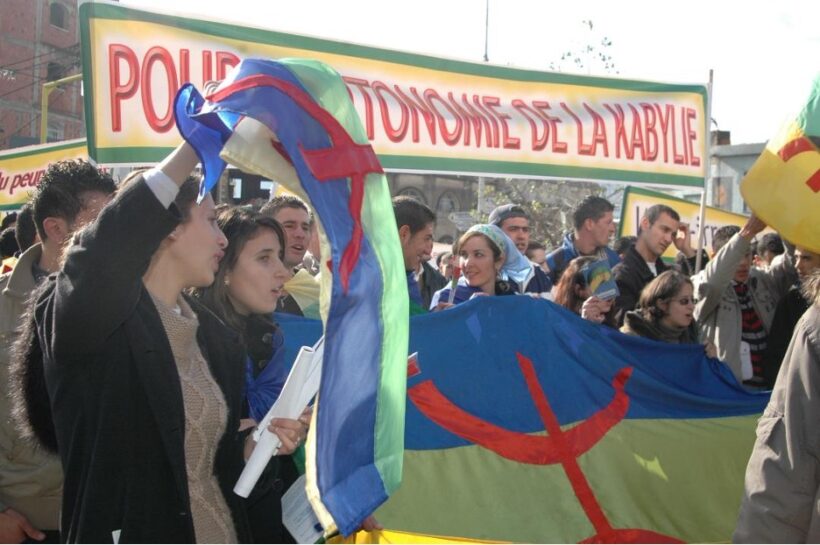From the so-called “Berberist” crisis of 1949 to the present day, the Kabyle question is at the heart of contemporary history. Independent Algeria, born in the heat of a war of liberation to which the contribution of Kabylia was fundamental, cannot be assimilated to an “Arab state” oppressing its “Kabyle minority” (the Kabyles are the Berbers or Amazighs, known as “Free Men”, the oldest inhabitants of North Africa, a people and an ethnic group in their own right).
Since the 19th century, they have been the largest Berber-speaking group in North Africa. The Kabyles live in the mountains of the Djurdjura, as well as on the Mediterranean coastline of these regions), which would have evolved politically in complete autarky compared to other regions that raise questions of plurality in a country in the grip of totalitarianism.
One year after Algeria’s independence, the Front des Forces Socialistes (FFS), a Kabyle opposition political party, was born as a cry of revolt against the authoritarian Arab-Islamist regime. It is the first political party with a militant base and sociological depth, essentially veterans of Algerian independence disillusioned by the Arab-Islamists who sent the army of that country into Kabylia on the first day of October 1963.
After the attack of Morocco in the region of Tindouf (Algeria), once again, the Kabyles led by the FFS mobilized and sent armed militants to the west to support an authoritarian Arab-Islamist regime to further defend the country.
Despite this, this regime did not change its authoritarian practices towards the Kabyles, where major Kabyles figures of the movement were assassinated for their democratic stance, so much so that the FFS decided to return to the maquis after a mini-congress. The Arab-Islamist regime reacted,and the repression was terrible. More than 400 people were killed and nearly 3,000 were arrested on the Kabyle side. Hundreds of militants or sympathizers were tortured in police stations.
For this regime, Kabylia is only a political, economic, social, cultural, and precarious condensation of the Algerian crisis, very complex. It has become a forgotten region of a country that sank into chaos and was a victim of forced Arabization and bloody repression. Since April 1980, Kabylia has found itself isolated in its struggle while it is, and always has been, a land of wisdom, discernment, and lucidity, maintaining a strong sense of politics and freedom. It has promoted citizen politics in a region at the forefront of its democratic struggles. Of course, over time, there have been traitors, cowards, and arsonists in the region.
Unfortunately, the situation in Kabylia is getting worse every year. Always qualified as a regionalist, separatist, and even racist by the Algerian regime which claims to be Arab. Kabylia fights with all its strength to oppose Arab assimilation and the Arab-Islamist ideology.
Today again, but in a much more obvious way, with an increasing insistence on the formation and restoration of a Kabyle nation tensions are exacerbated, and this dynamic highlight the true nature of the conflict between Kabylia and the Algerian state. Algeria, which is subservient to the Middle East is a civilizational opposition of the state, played out in Kabylia.
For the current regime, the results of its actions in Kabylia, especially with its slogan of a new Algeria, are forced Arabization, Wahhabi-type Islamization, repression, abusive arrests, obstruction of any economic development, destruction of its environment and marginalization of the Kabyle elite, without forgetting the physical assassination of some of its symbols and its elite.
A position that has continued to evolve over time where the Algerian dictatorial regime has never wanted a plural democratic Algeria, and all the hopes of an entire people reduced to nothing, its policy is to exterminate the very existence of the Kabyle nation, which fights only for these values, that is to say, Kabyle, Amazigh, democratic, secular and egalitarian, that is to say, a set of values incompatible with the Arab-Islamist ideology.










